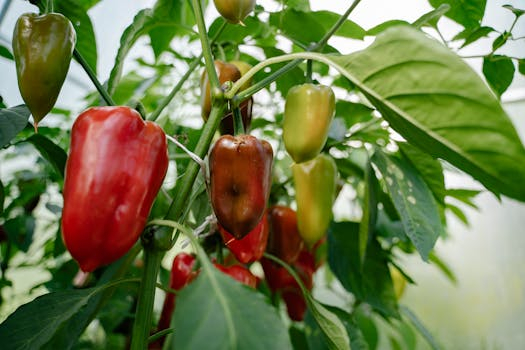Unified Action for Sustainable Food Systems: A Global Effort
As the global population continues to grow and the effects of climate change become increasingly apparent, ensuring sustainable food systems has become a top priority for the international community. In a world where millions suffer from hunger and malnutrition, creating a unified effort towards sustainable food systems is crucial in achieving a more prosperous and equitable future for all. In this article, we will explore the concept of unified action for sustainable food systems and the ways in which it is being implemented on a global scale.
What are Sustainable Food Systems?
Sustainable food systems are those that prioritize the health and well-being of people, the planet, and prosperity for all. This means creating food production, distribution, and consumption systems that are environmentally friendly, socially just, and economically viable. This includes reducing negative environmental impacts, ensuring fair labor practices, and promoting access to healthy and nutritious food for all individuals.
The Need for Unified Action
With food and agriculture being responsible for 21% of global greenhouse gas emissions and millions of people around the world suffering from hunger and malnutrition, it is clear that current food systems are not sustainable. In order to effectively address the challenges facing our food systems, a unified effort is needed from all actors involved, including governments, international organizations, civil society, and the private sector. This collaborative approach can help to create more impactful and long-lasting solutions for a more sustainable future.
The Role of Government and International Organizations
Governments and international organizations have a crucial role to play in implementing policies and regulations that promote sustainable food systems. This includes supporting small-scale farmers, investing in sustainable agriculture practices, and addressing issues such as food waste and food insecurity. The United Nations’ Sustainable Development Goals (SDGs) also provide a framework for countries to work towards achieving sustainable food systems by 2030.
The Importance of Civil Society
Civil society plays a vital role in holding governments and other actors accountable in their efforts towards sustainable food systems. Non-governmental organizations (NGOs) can help in advocating for policies and practices that promote sustainability, as well as supporting and empowering local communities to develop their own sustainable food systems. This can include promoting small-scale farming, preserving biodiversity, and improving access to education and resources for sustainable development.
The Role of the Private Sector
The private sector also has a significant impact on our food systems and can play a role in promoting sustainability. This includes implementing sustainable practices in their operations, such as reducing emissions and promoting fair labor practices, as well as producing and promoting healthier and more sustainable food options for consumers. Additionally, private companies can also support small-scale farmers by investing in sustainable agriculture techniques and providing fair prices for their products.
Global Efforts Towards Sustainable Food Systems
There are various initiatives and programs at the global level that are working towards promoting sustainable food systems. The United Nations’ Food and Agriculture Organization (FAO) has launched the Hand-In-Hand Initiative, which aims to bring together different stakeholders to achieve sustainable and inclusive agricultural development. The FAO is also leading the way in promoting a transition to more sustainable and resilient food systems through its Green Cities Initiative, which helps urban areas develop more sustainable food systems.
Furthermore, organizations such as the World Food Programme (WFP) and Action Against Hunger are working to provide food assistance and promote sustainable food systems in crisis-affected areas. These efforts not only help to address immediate food insecurity but also contribute to long-term solutions for sustainable food systems in these regions.
The Way Forward
Creating sustainable food systems is a complex and multifaceted challenge that requires a unified effort from all actors. With the growing threat of climate change and the ongoing global issue of hunger, it is now more important than ever to work together towards a more sustainable future. By promoting collaboration and investing in sustainable practices, we can create a global effort to transform our food systems and build a better world for generations to come.
In conclusion, the concept of unified action for sustainable food systems is crucial in addressing the many challenges facing our current food systems. By promoting a collaborative and inclusive approach, we can work towards a more sustainable, equitable, and prosperous future for all individuals and the planet as a whole.











